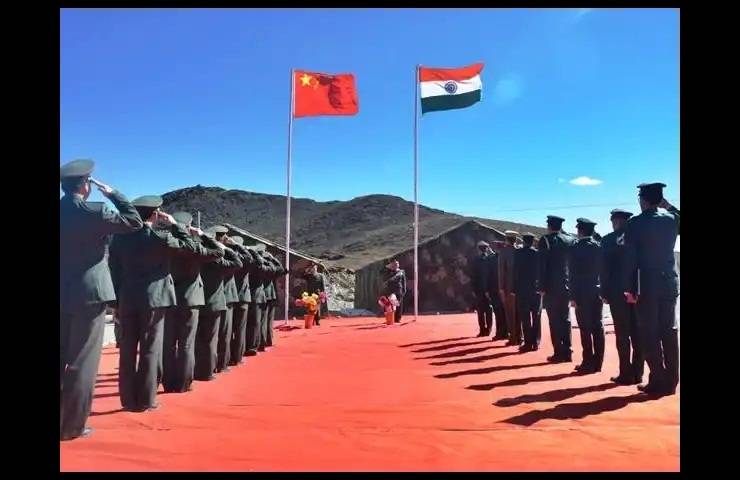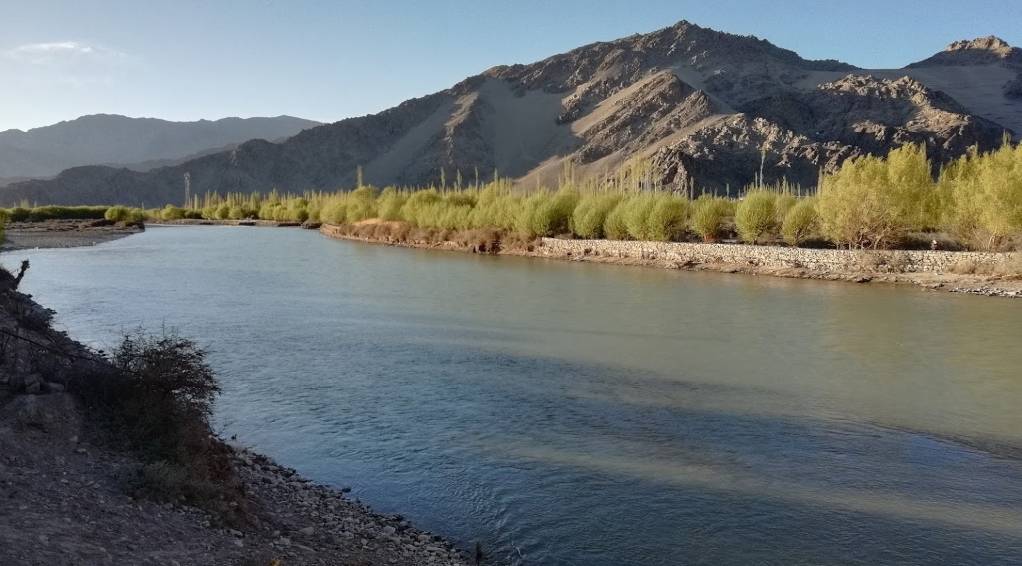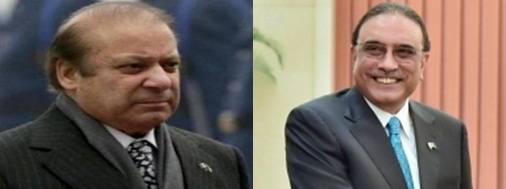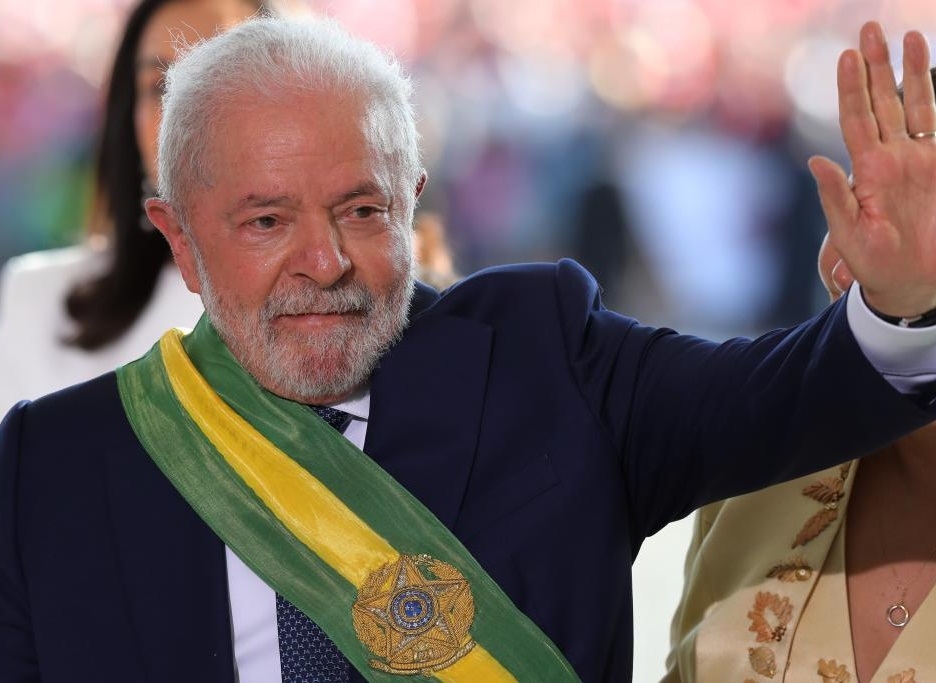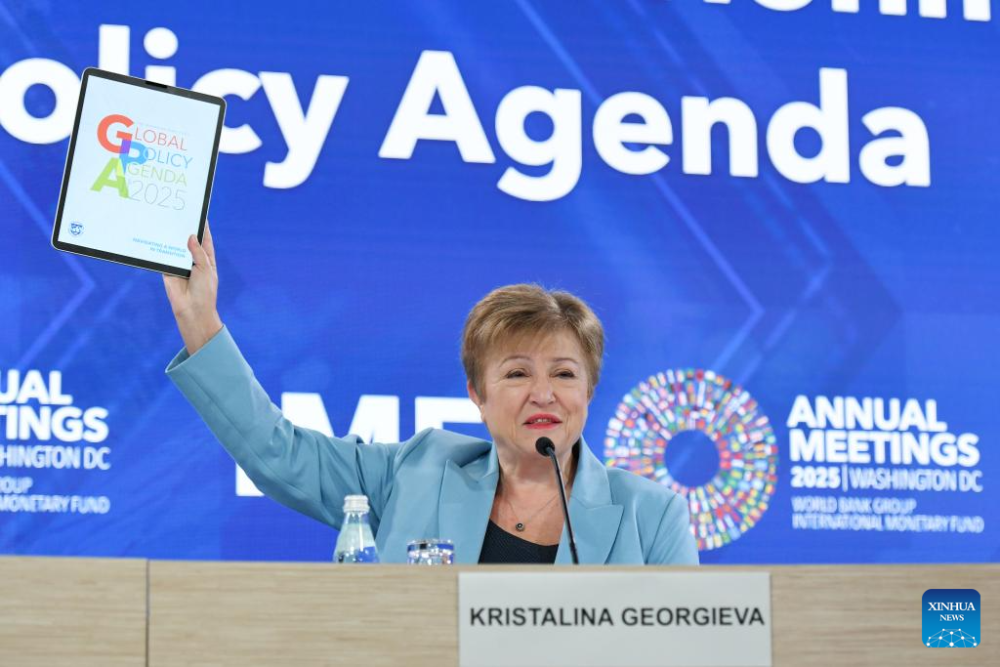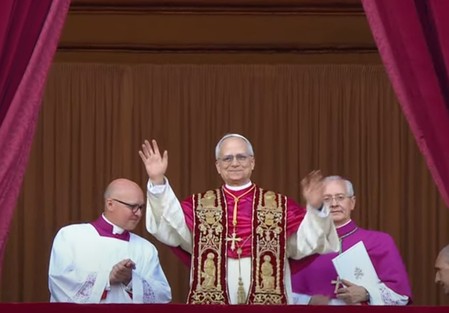While an agreement for disengagement from Patrolling Point-15 was close by in the last few rounds of talks, China’s refusal to discuss other friction areas, Demchok and Depsang, maintaining that they are not part of the current stand-off, has stalled any progress…reports Asian Lite News
The stalemate in the talks between India and China to end the standoff in Eastern Ladakh continues with no breakthrough in the 16th round of Corps Commander talks held on July 17.
In the interim, the two sides agreed to maintain the “security and stability” on the ground in the Western Sector along the Line of Actual Control (LAC), a joint statement issued late on July 18 said.
Building on the progress made at the last meeting on March 11, 2022, the two sides continued discussions for the resolution of the relevant issues along the LAC in the Western Sector in a “constructive and forward looking manner.”
Stating that they had a frank and in-depth exchange of views in this regard, in keeping with the guidance provided by the State leaders to work for the resolution of the remaining issues at the earliest, the statement added: “The two sides reaffirmed that the resolution of remaining issues would help in restoration of peace and tranquility along the LAC in the Western Sector and enable progress in bilateral relations.”
While an agreement for disengagement from Patrolling Point-15 was close by in the last few rounds of talks, China’s refusal to discuss other friction areas, Demchok and Depsang, maintaining that they are not part of the current stand-off, has stalled any progress. India has been insisting on comprehensive disengagement and de-escalation to end the ongoing standoff in eastern Ladakh.
Since the stand-off began in May 2020, the two sides have so far held 15 rounds of senior military commander talks with disengagement undertaken from both sides of Pangong Tso in February 2021, and from PP 17 in the Gogra-Hot Springs area in August, in addition to Galwan in 2020 after the violent clash. The 15th round of Corps Commander talks took place on March 11, 2022.
Shortly after the 15th round of talks in March, Chinese Foreign Minister Wang Yi had visited India.
Also, he and Foreign Minister S. Jaishankar met last week on the sidelines of the G20 foreign ministers meeting in Bali where they discussed the situation along LAC.
Over 50,000 troops and heavy equipment continue to be deployed on both sides, close to the LAC. In the last two years, China has also undertaken massive construction of infrastructure, habitat and support structures to maintain the troops close to the LAC, altering the ground status.
The meeting was held at the Chushul-Moldo border meeting point on the Indian side.
Officials had a frank and in-depth exchange of views, in keeping with the guidance provided by the state leaders to work for the resolution of the remaining issues at the earliest, the statement said.
The two sides reaffirmed that a resolution of the remaining issues would help in restoration of peace and tranquility along the LAC and enable progress in bilateral relations.
Till then, the two sides agreed to maintain the security and stability on the ground in the region. They agreed to stay in close contact and maintain dialogue through military and diplomatic channels and work out a mutually acceptable resolution of the remaining issues at the earliest.
Despite the heightened border tensions, bilateral trade between the two countries crossed a record $125.6 billion in 2021. In 2001, it was just $1.83 billion. However, the distrust between the two countries is evident as India has shut out Chinese companies in the lucrative 5G market. Besides, many Chinese apps have been shown the door following the border tensions.
As the Russia-Ukraine conflict intensified, the US and countries in the European Union are closely monitoring developments in this region. India and China together account for about 36 per cent of the world population.
Interestingly, India along with China, Bangladesh, Sri Lanka, Pakistan among several others in Asia as well as Africa have been on the same page in relation to the Russia-Ukraine issue. The BRICS bloc comprising India, China, Brazil, and South Africa besides Russia has also taken a similar stand towards the ongoing conflict.
“We have taken a pragmatic view of the India China border issue as well as economic and trade related activities have not been dented and there has been no disruption of the supply chain network, there were issues during the first wave of Covid 19 but that had nothing to do with the border issue,” an insider said. But focused on the disengagement on the border, the insider said that the ball is in China’s court for the new emerging post-Ukraine correlation to go forward.
ALSO READ-India, China agree to keep talks alive


